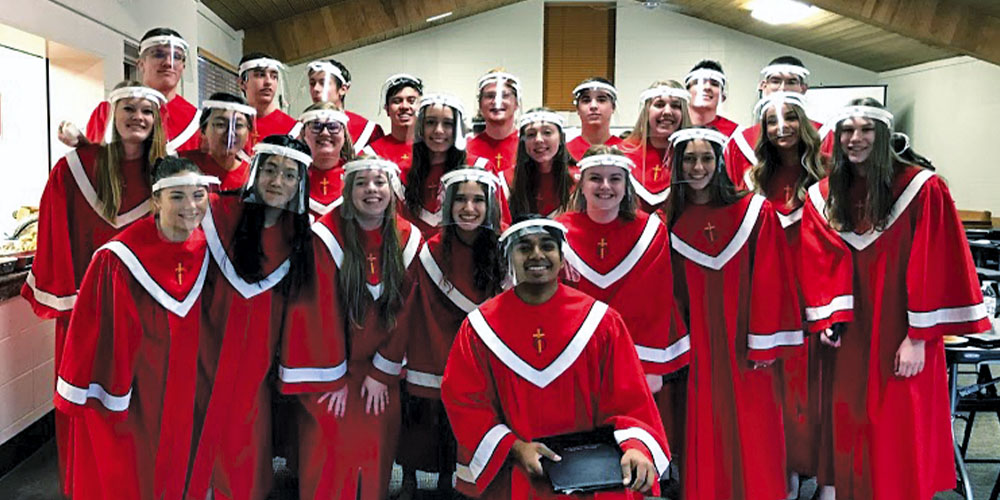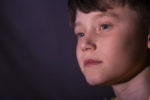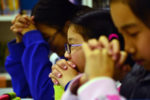 |
Luther Preparatory School (LPS), Watertown, Wis., and Michigan Lutheran Seminary (MLS), Saginaw, Mich., WELS’ two high-school-level ministerial education schools, spent the last year navigating the best ways to continue educating their students while also keeping everyone safe during a pandemic.
Closing a school at a moment’s notice, like what happened last March, looks different when students live on campus. For LPS, it was spring break, so students were already off campus, but many had to return to collect their belongings. For MLS, there was mass mobilization for students to pack up and leave. The students who couldn’t get home in a day had to stay with friends. Host families accommodated the international students until they could return home.
What was supposed to be a couple of weeks turned into the rest of the school year. Faculty and students both had to pivot to virtual learning.
“Our teachers are just wonderful servants—like they are at every school in our church body—and they made it work,” says LPS President Matthew Crass. “It’s not the same as it is face-to-face, but everyone did what they needed to do.”
Over the summer, school administrators had to stay on top of infection rates and state mandates. By the time the new school year rolled around, both schools could open for in-person learning. Adjustments had to be made to classrooms to accommodate social distancing, and dorm space was set aside for quarantine areas. In Michigan, per state mandates, sports have been put on hold. LPS was able to continue extracurriculars as close to normal as possible.
“I have nothing but good things to say about our students, about their resiliency, about their cooperation. In the grand scheme of things, they have done everything we have asked them to do,” says MLS President Mark Luetzow. “They know what’s at stake, and they have been very willing to do their part to remain in school, in person, for a great Christian education.”

Both schools did have outbreaks this school year. At LPS, a couple dozen students were infected early in the school year. Through contact tracing and quarantining, the spread was limited, and the school remained open. MLS went a long time without a confirmed case, but then it hit mid-first semester. The school decided to go virtual for the second half of the first semester—with contact tracing more than half the student body would have been quarantined. Students returned after Christmas break. During that time, the school implemented even more mitigation efforts and spread out the classrooms further.
Despite the challenging circumstances, both presidents can see blessings.
Crass says, “I hope our students see that they can keep living and serving, no matter what life throws at them.”
For MLS, it was a partnership with Christian Family Solutions for an on-site counselor to help address the mental health needs of students. Also Luetzow shared that 64 percent of students, more than average, were on the honor roll, meeting a 3.5 GPA or higher, at the conclusion of the first semester.
Says Luetzow, “It’s been humbling and amazing to see how the Lord continues to work in spite of all of this and to see how blessed we have been in the last year.”
Volume 108, Number 3
Issue: March 2021







